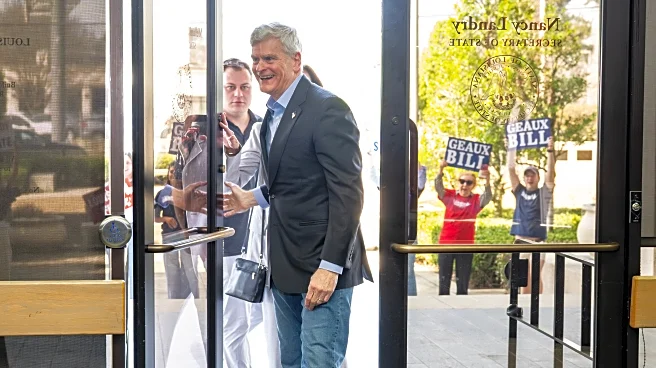Rapid Read • 9 min read
David Linich, Sustainability Principal at PwC U.S., has highlighted the challenges and opportunities presented by current U.S. trade policies, particularly tariffs, in an interview. Linich notes that the uncertainty surrounding these policies is negatively impacting businesses and consumers. As companies explore alternative supply sources, they must consider factors beyond tariff rates, such as human rights issues and sustainability complications. Linich emphasizes the importance of circular commerce, which involves reusing materials and products to minimize waste. He points out that tariffs are prompting companies to rethink their inputs, and some consumers are willing to pay more for sustainable products. The use of AI and precision robotics is enhancing the ability to evaluate waste streams and recycle valuable components, such as copper from semiconductors. Linich also discusses the challenges of textile circularity, noting the importance of purity in waste streams and the need for infrastructure to support recycling processes.
AD
The discussion around tariffs and circular commerce is significant as it highlights the intersection of trade policy and sustainability. Tariffs can disrupt supply chains, forcing companies to reconsider their sourcing strategies and potentially adopt more sustainable practices. This shift could lead to increased demand for recycled materials and sustainable products, benefiting industries focused on environmental responsibility. However, the transition to circular commerce requires collaboration and infrastructure development, which can be challenging for companies. The emphasis on sustainability aligns with growing consumer preferences for eco-friendly products, potentially driving market changes and influencing corporate strategies. Companies that successfully integrate circular practices may strengthen customer relationships and enhance their brand value.
As companies navigate the complexities of tariffs and sustainability, they may need to establish new partnerships and develop infrastructure to support circular commerce. This could involve investing in technology to improve waste stream evaluation and recycling processes. Retailers might also consider implementing take-back programs to enhance customer engagement and drive store traffic. The ongoing dialogue around trade policy and sustainability may lead to further innovations in packaging and product lifecycle management. Companies will likely continue to explore creative solutions to address environmental challenges, potentially influencing industry standards and consumer expectations.
The shift towards circular commerce raises ethical and cultural considerations, such as the impact of sourcing decisions on human rights and environmental sustainability. Companies must balance economic interests with social responsibility, which could lead to broader discussions about corporate ethics and consumer advocacy. The integration of AI and robotics in recycling processes may also prompt debates about technology's role in sustainability and its potential to transform industries. As circular commerce gains traction, it could drive long-term shifts in business models and consumer behavior, emphasizing the importance of collaboration and innovation in achieving sustainable growth.
AD
More Stories You Might Enjoy













